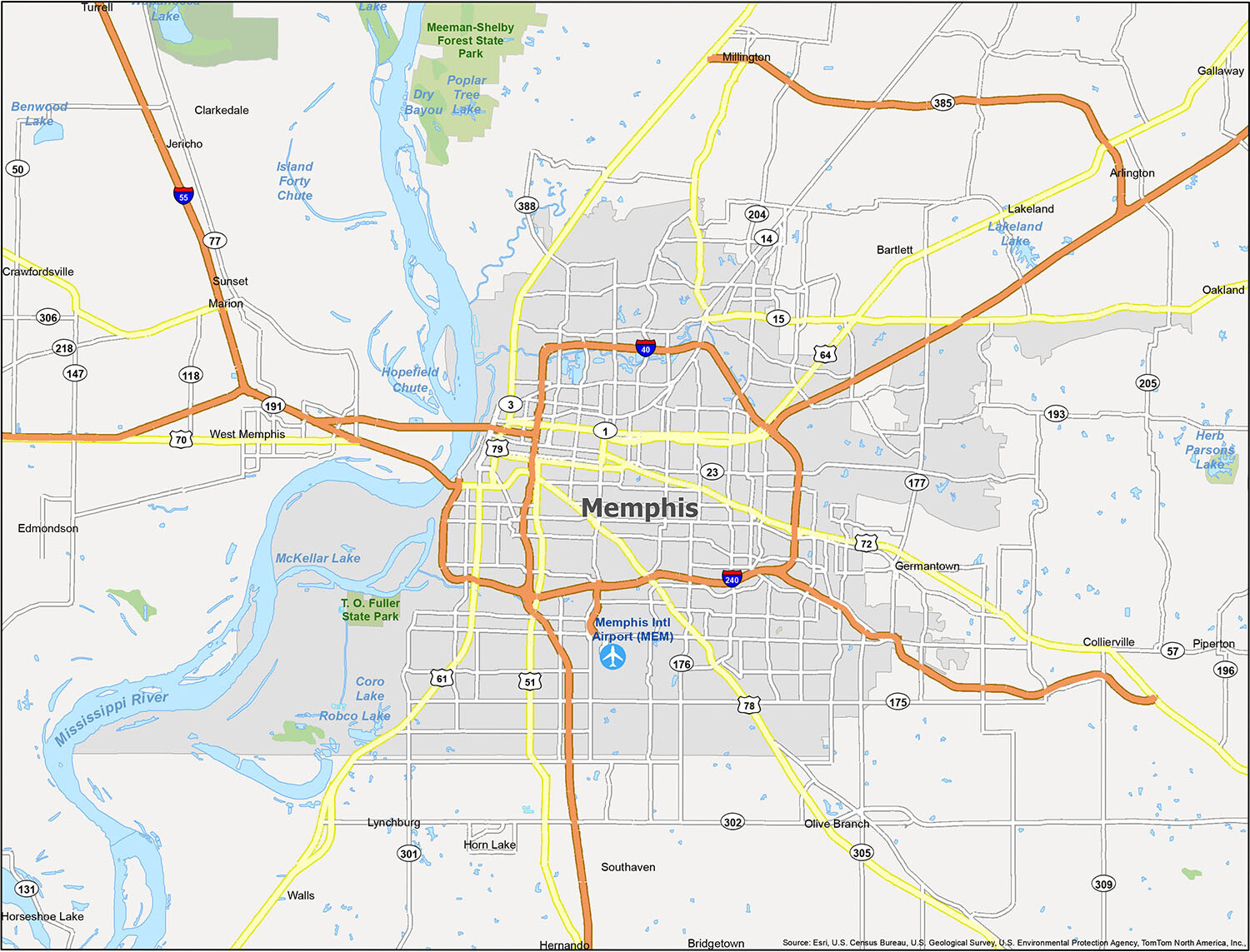Welcome to the vibrant Memphis Metropolitan Area, a region rich in culture, history, and economic opportunities. Nestled in the heart of the Mid-South, this area is a melting pot of traditions, music, and innovation. Whether you're considering a move, planning a visit, or simply curious about this dynamic region, this guide will provide you with everything you need to know about the Memphis Metropolitan Area. From its historical significance to its modern-day appeal, we’ll delve deep into what makes this region truly unique.
The Memphis Metropolitan Area, often referred to as "Memphis Metro," encompasses a diverse range of communities, each contributing to the area's unique identity. Known as the birthplace of blues and the home of rock 'n' roll, Memphis is not only a cultural hub but also a thriving economic center. Its strategic location along the Mississippi River has made it a key player in trade, logistics, and transportation for decades. Today, the region continues to grow, attracting new residents, businesses, and visitors alike.
In this article, we’ll explore the many facets of the Memphis Metropolitan Area, from its rich history and cultural landmarks to its economic landscape and quality of life. Whether you’re interested in its historical roots, modern attractions, or future prospects, this guide will provide you with valuable insights and actionable information. Let’s embark on this journey to uncover the heart and soul of the Memphis Metro region.
Read also:Motion God Bandman The Ultimate Rise Of A Music Icon
Table of Contents
A Brief History of the Memphis Metropolitan Area
The Memphis Metropolitan Area has a storied past that dates back to its founding in 1819 by Andrew Jackson, James Winchester, and John Overton. Originally named after the ancient Egyptian capital due to its location along the Mississippi River, Memphis quickly grew into a vital hub for trade and commerce. Its strategic position made it a gateway to the South, facilitating the movement of goods and people.
During the 19th century, Memphis played a pivotal role in the cotton industry, earning it the nickname "Cotton Capital of the World." The city's prominence in this sector attracted a diverse population, contributing to its cultural richness. However, like many Southern cities, Memphis faced significant challenges during the Civil War and Reconstruction era. Despite these obstacles, the city persevered and continued to evolve.
In the 20th century, Memphis became a beacon of cultural innovation. It was here that the blues genre took root, eventually giving rise to rock 'n' roll and soul music. Icons like Elvis Presley, B.B. King, and Aretha Franklin called Memphis home, cementing its status as a cultural mecca. Today, the Memphis Metropolitan Area continues to honor its past while embracing the future.
Geography and Location
The Memphis Metropolitan Area is located in the southwestern corner of Tennessee, bordering Arkansas to the west and Mississippi to the south. This strategic location along the Mississippi River has historically made it a key player in trade and transportation. The region spans approximately 3,000 square miles, encompassing Shelby County and parts of neighboring counties in Tennessee, Mississippi, and Arkansas.
One of the defining features of the area is its diverse geography. The Mississippi River forms a natural boundary to the west, while rolling hills and fertile plains characterize the interior. The region experiences a humid subtropical climate, with hot summers and mild winters, making it conducive to agriculture and outdoor activities.
Key Cities and Communities
- Memphis: The largest city in the region, known for its cultural landmarks and vibrant music scene.
- Bartlett: A suburban community with a strong focus on education and family-friendly amenities.
- Germantown: A picturesque city known for its excellent schools and upscale neighborhoods.
- Collierville: A charming town celebrated for its historic downtown and community events.
Cultural Significance of Memphis
Memphis is synonymous with music, and its cultural significance cannot be overstated. The city is often referred to as the "Home of the Blues" and the "Birthplace of Rock 'n' Roll." Beale Street, a historic district in downtown Memphis, is a testament to this legacy. It has been a gathering place for musicians and music lovers for over a century.
Read also:244 Drawings Your Ultimate Guide To Mastering The Art Of Sketching
Beyond music, Memphis is also renowned for its contributions to civil rights history. The National Civil Rights Museum, located at the Lorraine Motel where Dr. Martin Luther King Jr. was assassinated, is a powerful reminder of the city's role in the struggle for equality. The museum attracts thousands of visitors each year, offering a poignant and educational experience.
Memphis in Popular Culture
- Film and Television: Memphis has been featured in numerous films and TV shows, including "Mystery Train" and "The Blind Side."
- Literature: The city has inspired countless authors, from Tennessee Williams to John Grisham.
- Festivals: Events like the Memphis in May International Festival celebrate the city's cultural diversity.
Economic Landscape
The Memphis Metropolitan Area is a thriving economic hub, driven by industries such as logistics, healthcare, and manufacturing. Its central location and robust infrastructure make it an ideal base for businesses of all sizes. Memphis is home to the world's busiest cargo airport, FedEx's global hub, which plays a crucial role in the region's economy.
In addition to logistics, healthcare is another cornerstone of the local economy. Major institutions like St. Jude Children's Research Hospital and Methodist Le Bonheur Healthcare provide world-class medical services while creating thousands of jobs. The region is also seeing growth in technology and innovation, with initiatives aimed at fostering startups and entrepreneurship.
Key Economic Drivers
- Logistics and Transportation: Memphis is a global leader in logistics, thanks to its airport and river port.
- Healthcare: The region boasts a robust healthcare sector, with cutting-edge research and treatment facilities.
- Manufacturing: Industries such as automotive and aerospace have a strong presence in the area.
Education and Innovation
Education is a top priority in the Memphis Metropolitan Area, with a range of institutions catering to diverse needs. The University of Memphis, one of the largest universities in the state, offers a wide array of programs and is a hub for research and innovation. Additionally, the region is home to several community colleges and technical schools, providing accessible education and workforce training.
In recent years, Memphis has made significant strides in fostering innovation. Initiatives like the Memphis Innovation Corridor aim to connect businesses, universities, and government agencies to drive economic growth. The city is also investing in STEM education to prepare its workforce for the jobs of the future.
Notable Educational Institutions
- University of Memphis: A leading public university with a strong focus on research.
- Rhodes College: A prestigious liberal arts college known for its academic rigor.
- LeMoyne-Owen College: A historically Black college with a commitment to social justice.
Transportation and Infrastructure
The Memphis Metropolitan Area benefits from a well-developed transportation network that supports its economic activities. The region's infrastructure includes highways, railways, and waterways, all of which contribute to its status as a logistics powerhouse. Memphis International Airport, operated by FedEx, is a critical component of the global supply chain.
In addition to air and road transport, the Mississippi River serves as a vital artery for commerce. The Port of Memphis is one of the busiest inland ports in the United States, handling millions of tons of cargo annually. Investments in infrastructure continue to enhance the region's connectivity and economic potential.
Key Transportation Features
- Memphis International Airport: A global hub for cargo and passenger flights.
- Interstate Highways: I-40, I-55, and I-65 provide easy access to major markets.
- Mississippi River: A key route for shipping and trade.
Healthcare and Quality of Life
Healthcare is a cornerstone of the Memphis Metropolitan Area, with a focus on accessibility and innovation. The region is home to world-renowned institutions like St. Jude Children's Research Hospital, which provides free treatment to children with catastrophic diseases. This commitment to healthcare excellence extends to other facilities, ensuring that residents have access to high-quality care.
Quality of life in Memphis is enhanced by its vibrant cultural scene, affordable cost of living, and strong sense of community. The region offers a range of recreational opportunities, from parks and trails to museums and festivals. Additionally, initiatives aimed at improving public health and education are helping to create a brighter future for all residents.
Healthcare Highlights
- St. Jude Children's Research Hospital: A global leader in pediatric cancer research and treatment.
- Methodist Le Bonheur Healthcare: A network of hospitals and clinics serving the region.
- Community Health Initiatives: Programs aimed at improving public health outcomes.
Top Tourist Attractions
Memphis is a city that captivates visitors with its unique blend of history, culture, and entertainment. From iconic landmarks to hidden gems, the region offers something for everyone. Beale Street, the National Civil Rights Museum, and Graceland are just a few of the must-see attractions that draw millions of tourists each year.
Beyond its famous sites, Memphis also boasts a thriving arts scene, with galleries, theaters, and music venues showcasing local talent. The city's culinary offerings are equally impressive, with barbecue being a standout favorite. Whether you're exploring its rich history or enjoying its modern amenities, Memphis promises an unforgettable experience.
Must-Visit Attractions
- Beale Street: A historic district known for its live music and vibrant nightlife.
- National Civil Rights Museum: A powerful tribute to the civil rights movement.
- Graceland: The iconic home of Elvis Presley, open for tours.
Future Growth and Development
The future of the Memphis Metropolitan Area is bright, with ongoing investments in infrastructure, education, and innovation. The region is poised to become a leader in sustainable development, with initiatives aimed at reducing its carbon footprint and enhancing quality of life. As the population continues to grow, so too does the demand for housing, jobs, and services.
Strategic partnerships between government, businesses, and educational institutions are driving progress in areas such as technology and healthcare. These efforts are creating new opportunities for residents and positioning Memphis as a hub for the industries of tomorrow. With its rich history and forward-thinking vision, the Memphis Metro region is well-equipped to meet the challenges of the future.
Conclusion and Call to Action
In conclusion, the Memphis Metropolitan Area is a dynamic and diverse region that offers a wealth of opportunities for residents, businesses, and visitors alike. From its rich cultural heritage to its thriving economy, Memphis continues to evolve while staying true to its roots. Whether you're drawn to its music, history, or innovation, there's no denying the unique charm of this vibrant area.
We hope this guide has provided you with valuable insights into the Memphis Metro region. If you found this article helpful, we encourage you to share it with others who may be interested in learning more. Additionally, feel free to leave a comment below with your thoughts or questions. For more content like this, be sure to explore our other articles and resources. Thank you for joining us on this journey through the heart of the Memphis Metropolitan Area!

